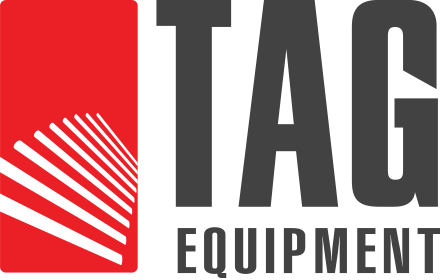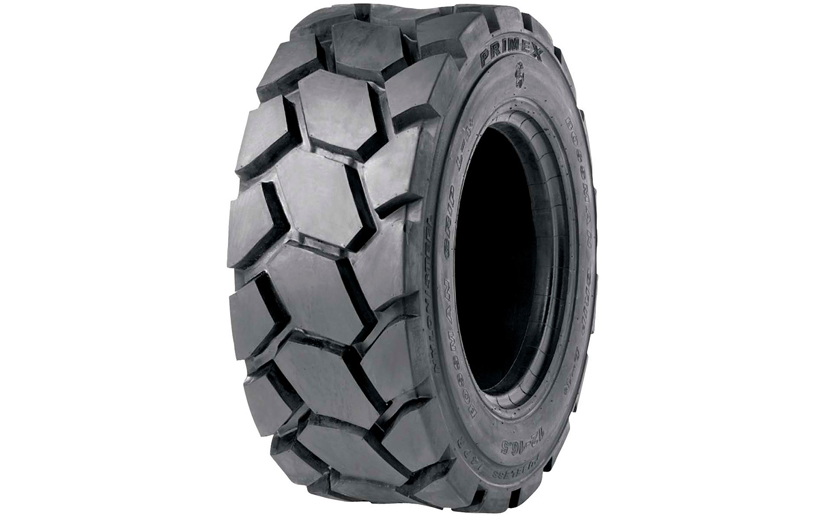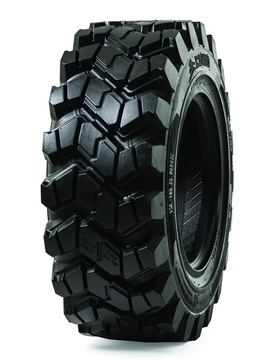Choosing suitable tires for your skid steer can significantly impact your machine’s performance and productivity. Skid steer owners often face the dilemma of selecting pneumatic, foam-filled, and flat-proof tires. Each tire type has unique advantages and disadvantages, and making an informed choice is crucial for optimizing your equipment’s operations. This guide will explore these tire options, their pros and cons, and highlight the best applications for flat-proof tires.
What are Pneumatic Tires?
Pneumatic tires, also known as air-filled tires, are a staple in the skid steer industry. They are constructed with a rubber outer layer reinforced with fabric or steel cords. The defining feature of pneumatic tires is their inflation with air, which provides a cushioning effect.
Pros and Cons of Air-Filled Tires
Pros:
- Shock Absorption: One of the standout advantages of pneumatic tires is their excellent shock absorption capability. This feature translates to reduced operator fatigue and less wear and tear on the skid steer itself.
- Traction: Air-filled tires offer good traction, making them suitable for various terrains, including dirt, gravel, and pavement. This traction helps skid steer operators maintain control, even in less-than-ideal conditions.
- Ride Comfort: Operators often appreciate the comfortable ride offered by pneumatic tires. This advantage can make long hours of operation less physically taxing and more bearable.
Cons:
- Puncture Risk: Air-filled skid steer tires are inherently vulnerable to punctures. Nails, rocks, and sharp objects can easily penetrate the rubber, causing flats. This susceptibility to punctures can lead to unexpected downtime and the need for repairs.
- Maintenance: Proper upkeep is essential for pneumatic tires. You should check and maintain tire pressure regularly to ensure optimal performance. Underinflated or overinflated tires can negatively impact the machine’s operations.
- Flat Tires: Despite maintenance efforts, unexpected flats can still occur, especially in demanding work environments where hazards like nails or sharp debris are prevalent. Dealing with flat tires can be frustrating and costly in terms of downtime and repair expenses.
What are Foam-Filled Tires?
Foam-filled tires offer an alternative to traditional pneumatic tires. They are solid rubber filled with foam, eliminating the need for air. This design addresses a significant drawback of pneumatic tires.
Foam-Filled Tires Pros and Cons
Pros:
- No Flats: The standout feature of foam-filled tires is their flat-proof nature. They are virtually impervious to punctures, ensuring uninterrupted work even in harsh conditions. This attribute is particularly beneficial in work environments with sharp debris or objects that pose a constant threat.
- Durability: Foam-filled tires are highly durable and resistant to punctures. It can translate into long-lasting, dependable performance, reducing the need for frequent replacements and downtime.
- Low Maintenance: Compared to pneumatic tires, foam-filled tires require minimal maintenance. The absence of air pressure means you do not have to worry about regular pressure checks and adjustments.
Cons:
- Ride Comfort: While foam-filled tires offer excellent flat-proof capabilities, they may not provide the same level of ride comfort as pneumatic tires. The cushioning effect of air-filled tires can be challenging to replicate entirely with foam.
- Cost: Foam-filled tires can be more expensive upfront than traditional pneumatic tires. However, it is essential to consider the long-term cost savings due to reduced maintenance and fewer replacements.
- Weight: Foam-filled tires can be heavier than their pneumatic counterparts. The additional weight can affect fuel efficiency.
What are Flat-Proof Tires?
Flat-proof skid steer tires are the ultimate solution to eliminate the risk of flats. They are solid rubber, designed and built to withstand the most demanding work environments.
Pros and Cons of Flat-Proof Tires
Pros:
- Flat-Proof: The most significant advantage of flat-proof tires is, as the name indicates, their imperviousness to punctures. Regardless of the ruggedness of the terrain or the presence of sharp objects, they can keep your skid steer running without interruption.
- Durability: Flat-proof tires are incredibly durable and can outlast other types. Their solid rubber construction can handle harsh conditions, reducing the frequency of tire replacements and overall operating costs.
- Low Maintenance: Flat-proof skid steer tires, like foam-filled tires, require minimal maintenance. The absence of air means you do not have to worry about pressure checks.
Cons:
- Ride Comfort: While they excel in durability and flat-proof capability, these tires may not provide the same level of ride comfort as pneumatic tires. The cushioning effect of air-filled tires can be challenging to replicate with solid rubber.
- Limited Versatility: Flat-proof tires are excellent for specific applications with high puncture risks but may not be suitable for all terrains. Considering your specific needs and operating conditions before opting for this type is best.
- Initial Cost: Flat-proof tires can be more expensive upfront than pneumatic and foam-filled tires. However, weighing the initial investment against the long-term cost savings and increased productivity will help you understand the benefits.
5 Best Applications of Flat-Proof Tires
Flat-proof tires shine in specific applications where punctures are a constant threat. Here are some scenarios where they are the ideal choice:
- Construction Sites: In the construction industry, where sharp debris, nails, and other hazards are common, flat-proof tires ensure that your skid steer stays operational and offer high productivity.
- Agriculture: Rocky fields, thorny vegetation, and other puncture risks are common issues in this industry. Flat-proof skid steer tires are a reliable solution to keep your projects running without interruption.
- Landscaping: It often involves varying terrains and puncture risks. Flat-proof tires provide the reliability and peace of mind needed for demanding tasks in this industry.
- Waste Management: These operations deal with sharp objects and challenging surfaces regularly. Flat-proof skid steer tires are the intelligent choice in such environments.
Explore Our Extensive Selection of Skid Steer Tires
Tag Equipment offers a range of solutions to upgrade your machine’s performance and ensure longevity. Our inventory includes flat-proof tires, air-filled tires, solid rubber tires, and tire chains designed to meet your needs. Our steel wheel rims also provide durability and strength, ensuring your tires perform optimally.
Our selection includes the following flat-proof skid steer tires:
- Traxter HD
- Traxter R4
- Traxter SM
- Camso SKS 792S
Call us at 416-716-5850 or fill out our online form to discuss the best tire solutions that meet your needs to ensure your compact equipment operates efficiently and without interruption.


